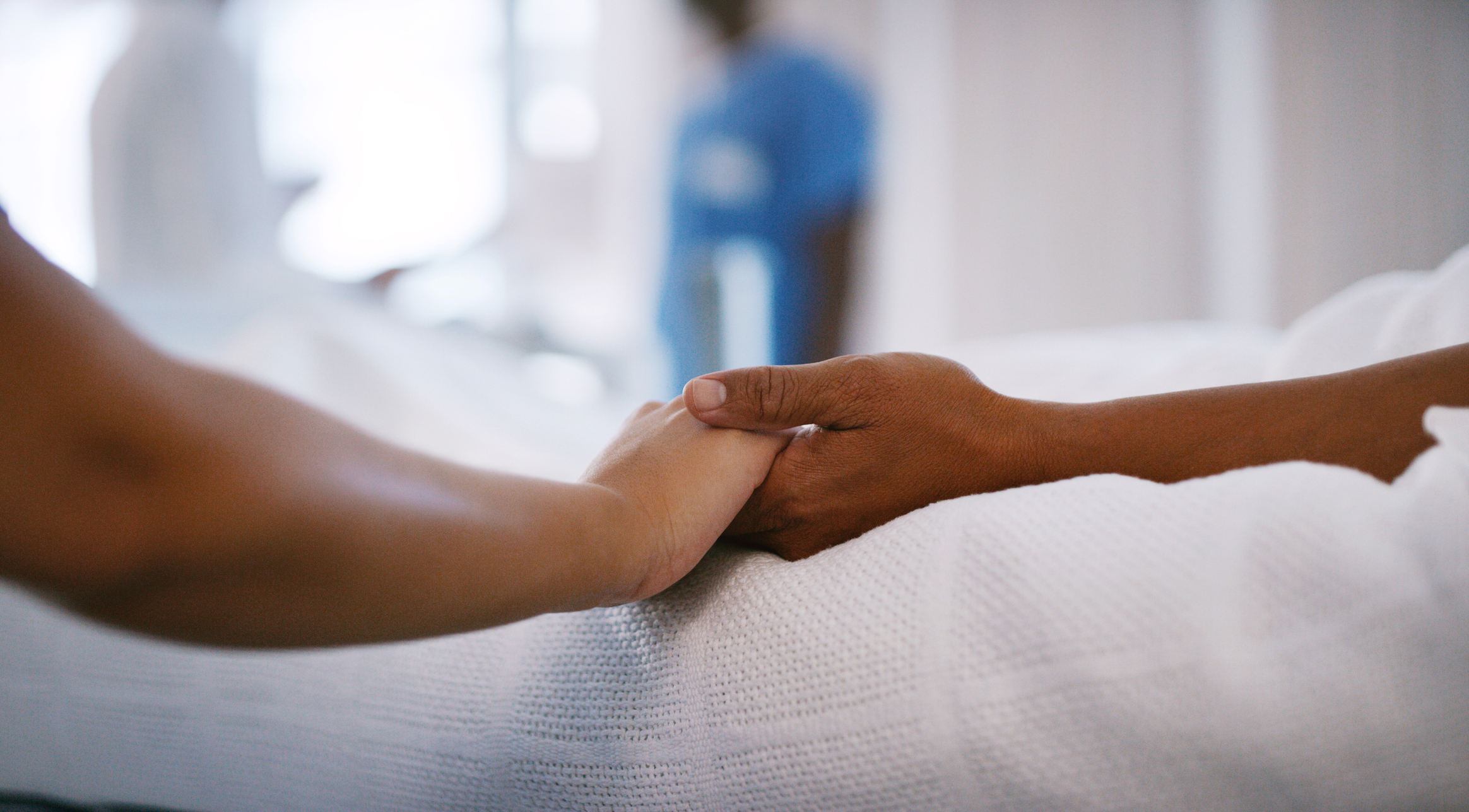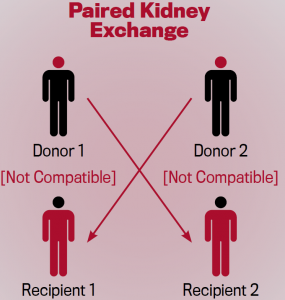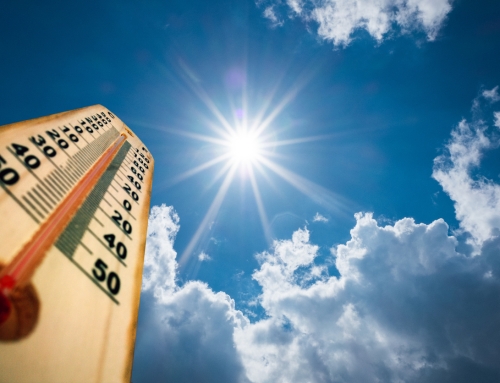By Harvey Mysel
I’ve often been asked: “Where can I register to get a living donor?” Unlike deceased donation where there’s one national list, (although you can multi-list because some areas have a shorter wait time) there’s no such list for someone looking for a living donor. You must find your own living donor. When you do have someone that is able to be a living donor, many are not compatible with their recipient. Thirty to 50 percent of donor/recipient pairs are not compatible with each other.
In such a situation the incompatible donor could still help the person in need by getting involved in a paired exchange. What this incompatible pair needs to know is that there are many paired exchange options. A paired exchange occurs, when two or more incompatible donor/recipient pairs swap their incompatible donors as is shown here. In this example there are two pairs, but there could be three, four or an unlimited number of pairs.
Paired exchanges have already increased the number of living kidney transplants by more than 1,000 a year, and since so many donors are not compatible with their recipient, this number is likely to continue to grow. To maximize your chances of being paired with another (or more than one) incompatible pair, you should be aware of all the paired exchange options. One of the barriers to increasing the number of paired exchanges is that a centralized national program of ALL incompatible pairs does not exist. The likelihood of being matched with another incompatible pair is increased when there is a large pool of incompatible pairs.
Here are the different types of paired exchange programs that have been developed:
- If your transplant hospital has a paired exchange program, then they will try to match you with the other incompatible pairs that are registered at their hospital.
- Some hospitals share some or all of their incompatible pairs with other local hospitals or ones in different parts of the US.
- Hospitals have transplant centers in different markets, and they share their information within those hospitals.
- There are three national paired exchange organizations—Alliance for Paired Donation, National Kidney Registry and the UNOS Paired Exchange Program. These organizations have developed a “co-op” type relationship with many transplant centers. These centers list their incompatible pairs with one or more “co-op.” To register with one of the paired exchange programs, an incompatible pair needs to register with one of their affiliates.
- You can register with multiple centers for a paired exchange and with multiple “co-op” organizations. With private health insurance, you need to check to makes sure you are covered at other hospitals. Those with Medicare are covered at all transplant hospitals.
Here is the information about the 3 “co-op” type of organizations:
Alliance for Paired Donation – www.paireddonation.org
National Kidney Registry – www.kidneyregistry.org
NKR affiliated centers – www.kidneytransplantcenters.org
UNOS – www.transplantpro.org
UNOS affiliated centers – www.unos.org/wp-content/uploads/unos/OPTNKPDPPCentersByState.pdf
You should ask if your hospital is involved with one or more of the “co-op” programs. Some hospitals will keep the pairs that are easy to match and offer the more difficult pairs to their exchange member(s). This is not an efficient way of maximizing paired exchanges.
Here’s what you could do to maximize your chances of being matched with another incompatible pair:
- Register with your original transplant center’s paired exchange program.
- If your center is not affiliated with one of the “co-op” organizations, find transplant centers that are affiliated.
- The National Kidney Registry is completing 70 percent of all paired exchanges. Since they are the major player, you should try to first get registered at a transplant center that is affiliated with National Kidney Registry, then look at other options. Registering with many transplant programs may not be easy, but it will increase the odds of being matched with another incompatible pair.
Harvey Mysel is a 2-time kidney transplant recipient and Founder of the Living Kidney Donors Network, a 501(c)3 non-profit organization that offers workshops, webcasts and private consultation educating people in need so they could be successful at finding a living donor.





